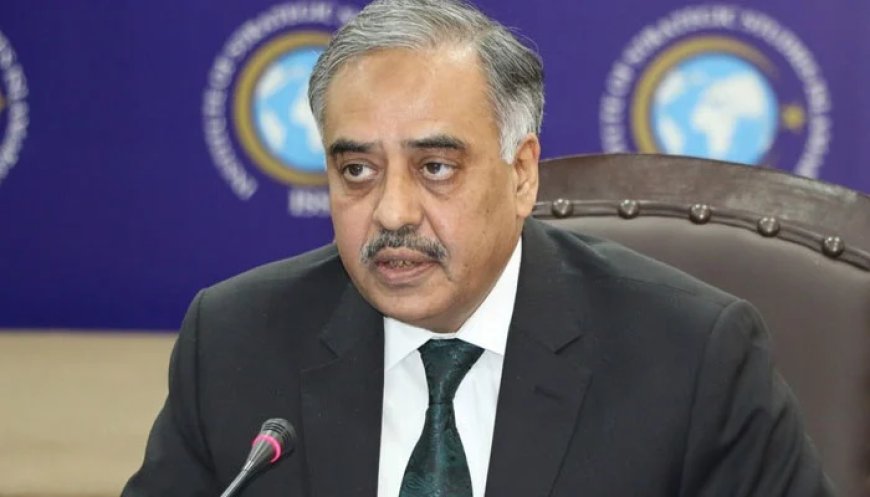Missile sanctions: Discriminatory US policies undermine regional strategic stability, say experts

1. Sohail Mahmood says US discriminatory policies accentuated military asymmetries in South Asia
Experts Criticize US Sanctions on Pakistan as Unfounded and Discriminatory
ISLAMABAD: Former Foreign Secretary and Director General of the Institute of Strategic Studies Islamabad (ISSI), Sohail Mahmood, has described recent US sanctions against Pakistani entities and a senior NSA official’s comments on Pakistan’s long-range ballistic missiles as “unfortunate,” “unfounded,” and “lacking historical and rational basis.”
Endorsing the Foreign Office’s response, Sohail Mahmood highlighted that US policies exacerbated military imbalances in South Asia, undermining strategic stability. He reiterated that Pakistan’s strategic program is a “sacred trust” of the people, enjoys national consensus, and is impervious to external influence or compromise.
As the designated General Secretary of D-8, Ambassador Mahmood emphasized the importance of constructive engagement with the US to ensure Pakistan’s legitimate security concerns and defense needs are acknowledged. He called for fair and non-discriminatory treatment and expressed confidence that Pakistan’s strategic clarity and national resolve would prevail.
Strategic Stability and Regional Dynamics
Malik Qasim Mustafa, Director of ACDC at ISSI, criticized the US for ignoring the fragile strategic stability in South Asia by imposing discriminatory sanctions. He noted that Pakistan has consistently addressed international concerns regarding its strategic program while countering baseless allegations.
Ambassador Tahir Hussain Andrabi viewed the sanctions as a reflection of geopolitical contestations and gaps in export control regimes that block states’ legitimate access to technology for peaceful purposes. He stressed that Pakistan would not accept caps on its missile capabilities, asserting that meaningful arms control discussions could only occur bilaterally, with the US facilitating such dialogue in the region.
Political Chessboard and Geopolitical Contestations
Dr. Zafar Nawaz Jaspal, Dean of Social Sciences and Professor at QAU, argued that the sanctions were part of a broader political strategy aimed at discrediting Pakistan and advancing US interests. He claimed the US seeks to cap and potentially roll back Pakistan’s nuclear program while promoting India as a major regional power, a stance unacceptable to Pakistan. Dr. Jaspal linked the sanctions to the intensifying US-China strategic rivalry, with India leveraging the situation to pressure Pakistan.
Ambassador Zamir Akram, Adviser to SPD, suggested that Pakistan’s strategic partnership with China may have influenced US policy, as the sanctions align with efforts to contain China. He stressed the need to enhance Pakistan’s missile and space programs to counter regional threats, particularly from India.
Unified Response Against Indian Hegemony
Participants, including Ambassador Khalid Mahmood, Chairman of the ISSI Board of Governors, resolved that Indian hegemony could not be accepted and noted the bleak prospects of normalization between Pakistan and India. Mahmood remarked that while sanctions are not new, they will not impede Pakistan’s strategic program.
The experts collectively called for strengthening Pakistan’s strategic capabilities to safeguard national security and uphold regional stability.


















































